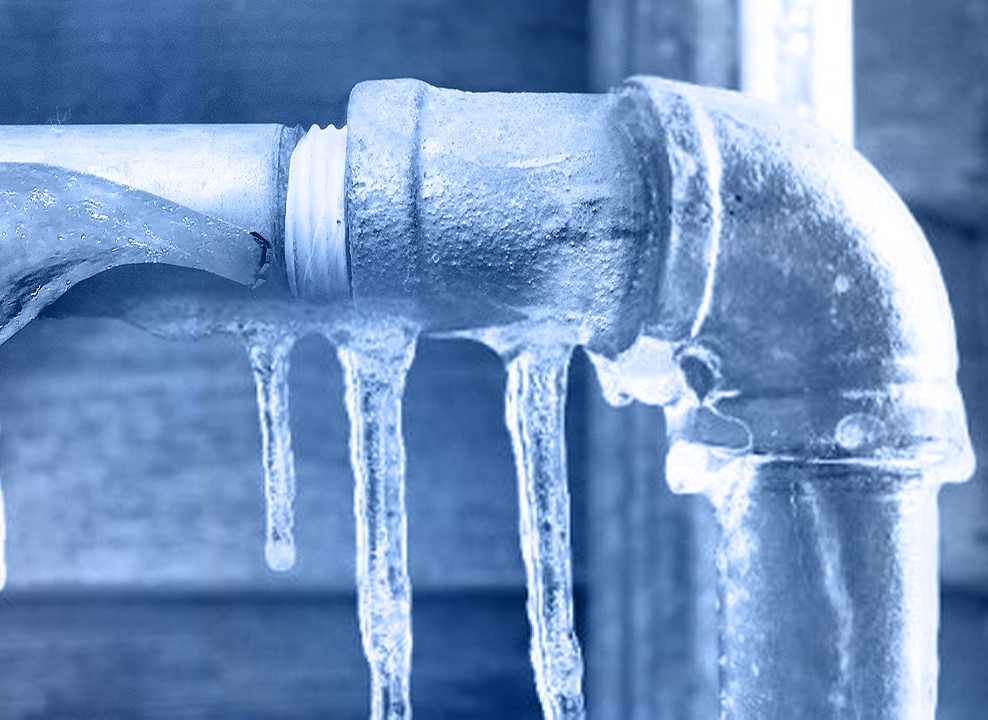Essential Tips to Avoid Frozen Pipes in Cold Weather: Expert Insights
Essential Tips to Avoid Frozen Pipes in Cold Weather: Expert Insights
Blog Article
How do you really feel in relation to Preventing and dealing with frozen pipes?

Winter can ruin your pipes, particularly by freezing pipelines. Below's how to prevent it from taking place and what to do if it does.
Introduction
As temperatures decline, the threat of frozen pipelines rises, potentially resulting in pricey repair services and water damage. Understanding how to stop icy pipes is critical for homeowners in chilly environments.
Prevention Tips
Insulating at risk pipes
Wrap pipes in insulation sleeves or use warmth tape to safeguard them from freezing temperature levels. Focus on pipes in unheated or exterior areas of the home.
Heating techniques
Maintain interior rooms sufficiently heated up, especially locations with plumbing. Open closet doors to enable cozy air to circulate around pipes under sinks.
Just how to identify frozen pipelines
Search for decreased water circulation from taps, uncommon smells or noises from pipelines, and noticeable frost on exposed pipes.
Long-Term Solutions
Architectural modifications
Take into consideration rerouting pipelines far from outside walls or unheated areas. Add extra insulation to attic rooms, cellars, and crawl spaces.
Upgrading insulation
Invest in premium insulation for pipes, attics, and walls. Appropriate insulation aids maintain consistent temperatures and lowers the danger of icy pipes.
Securing Exterior Pipes
Garden tubes and outside faucets
Separate and drain yard hose pipes prior to winter. Install frost-proof faucets or cover outside faucets with insulated caps.
Understanding Icy Pipes
What causes pipelines to ice up?
Pipes ice up when subjected to temperatures listed below 32 ° F (0 ° C) for prolonged periods. As water inside the pipelines ices up, it expands, putting pressure on the pipe walls and potentially creating them to rupture.
Dangers and problems
Frozen pipes can result in water supply disturbances, building damage, and expensive repair work. Burst pipelines can flood homes and create extensive structural damage.
Indications of Frozen Piping
Recognizing frozen pipelines early can prevent them from bursting.
What to Do If Your Pipelines Freeze
Immediate actions to take
If you think frozen pipes, maintain faucets open to relieve pressure as the ice thaws. Use a hairdryer or towels taken in hot water to thaw pipes gradually.
Verdict
Avoiding icy pipes calls for proactive measures and fast responses. By understanding the reasons, indications, and safety nets, home owners can safeguard their pipes during winter.
Helpful Tips to Prevent Frozen Pipes this Winter
UNDERSTANDING THE BASICS: WHY PIPES FREEZE AND WHY IT’S A PROBLEM
Water freezing inside pipes is common during the winter months, but understanding why pipes freeze, and the potential problems it can cause is crucial in preventing such incidents. This section will delve into the basics of why pipes freeze and the associated problems that may arise.
THE SCIENCE BEHIND FROZEN PIPES
When water reaches freezing temperatures, it undergoes a physical transformation and solidifies into ice. This expansion of water as it freezes is the primary reason pipes can burst. As the water inside the pipe freezes, it expands, creating immense pressure on the walls. If the pressure becomes too great, the pipe can crack or rupture, leading to leaks and water damage.
FACTORS THAT CONTRIBUTE TO PIPE FREEZING
Low Temperatures: Extremely cold weather, especially below freezing, increases the risk of pipes freezing. Uninsulated or Poorly Insulated Pipes: Pipes located in unheated areas, such as basements, crawl spaces, or attics, are more prone to freezing. Insufficient insulation or lack of insulation altogether exacerbates the problem. Exterior Wall Exposure: Pipes running along exterior walls are susceptible to freezing as they encounter colder temperatures outside. Lack of Heating or Temperature Regulation: Inadequate heating or inconsistent temperature control in your home can contribute to frozen pipes. PROBLEMS CAUSED BY FROZEN PIPES
- Pipe Bursting: As mentioned earlier, the expansion of water as it freezes can cause pipes to burst, resulting in significant water damage.
- Water Damage: When pipes burst, it can lead to flooding and water damage to your property, including walls, ceilings, flooring, and personal belongings.
- Structural Damage: Prolonged exposure to water from burst pipes can compromise the structural integrity of your home, leading to costly repairs.
- Mold and Mildew Growth: Excess moisture from water damage can create a favorable environment for mold and mildew growth, posing health risks to occupants.
- Disrupted Water Supply: Frozen pipes can also result in a complete or partial loss of water supply until the issue is resolved.
WHY CERTAIN PIPES ARE MORE PRONE TO FREEZING
- Location: Pipes located in unheated or poorly insulated areas, such as basements, crawl spaces, attics, or exterior walls, are at higher risk of freezing.
- Exterior Pipes: Outdoor pipes, such as those used for irrigation or exposed plumbing, are particularly vulnerable to freezing as they are directly exposed to the elements.
- Supply Lines: Pipes that carry water from the main water supply into your home, including the main water line, are critical to protect as freezing in these lines can affect your entire plumbing system.
- Underground Pipes: Pipes buried underground, such as those connected to sprinkler systems or outdoor faucets, can be susceptible to freezing if not properly insulated.
https://busybusy.com/blog/helpful-tips-to-prevent-frozen-pipes-this-winter/

I stumbled upon that entry about Winter Plumbing Precautions: Preventing Frozen Pipes when doing a search on the web. Enjoyed reading our blog? Please quickly share it. Help others check it out. I cherish reading our article about 6 Ways to Prevent Frozen Pipes.
Booking Page Report this page